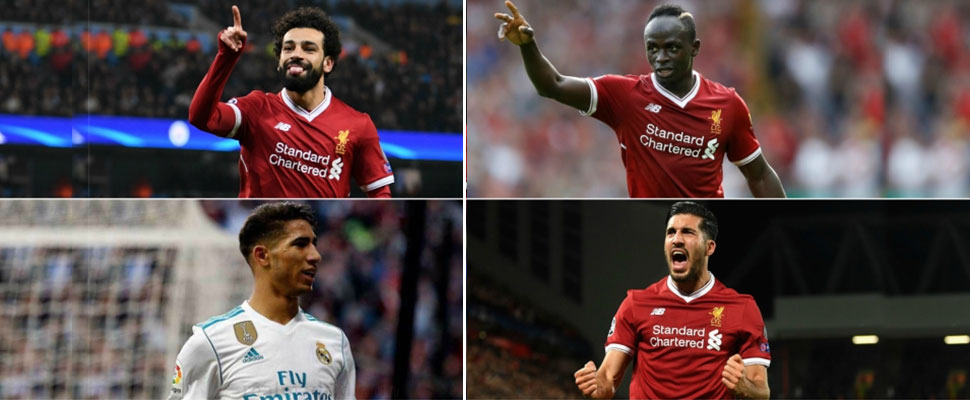Ramadan: the religious practice that could influence the Champions final
Four players, three from Liverpool and one from Real Madrid, must carry out this fast hours before the game in Kiev, but will they fulfill it?

The Egyptian Mohamed Salah, the Senegalese Sadio Mane, the German Emre Can and the Moroccan Achraf Hakimi, are the four players who will play the final of the UEFA Champions League and who, being Muslims, celebrate by custom Ramadan. This practice is of great importance within Islamic faith, but very few are clear about the different aspects that surround this celebration: exactly what does Ramadan consist of? Can it affect the performance of these footballers? Can it be avoided because it happens at the same time as another event of great magnitude?
Leer en español: El Ramadán: la práctica religiosa que podría influir en la final de Champions
Ramadan: the month of burning the sins and being forgiven
Ramadan is the ninth month of the Muslim year and usually varies from dates in the western calendar: in this 2018 it is celebrated from May 16 until June 15, approximately. In this month, Muslims cannot consume food, drink, smoke, or have sex since the sun rises until it sets.
Fasting is practiced in order to purify oneself mentally, morally, and corporally, so Ramadan is the month in which sins are forgiven. Likewise, this practice is mandatory for all Muslims, with a few exceptions: children and the elderly, people with health difficulties, women in post-partum recovery, among others.
Champions Final: Muslims would be affected their performance
Professional footballers, athletes of high performance par excellence, need a diet according to the physical demands of their profession. Not eating properly can incur loss of consciousness or injury due to lack of components that only food and beverages provide. The fasting of Ramadan greatly conditions the abilities of a soccer player, since it makes it impossible to deploy his talent one hundred percent.
Several coaches have seen the performance of their teams affected by the practice of Ramadan by their players. In 2009, the then Inter Milan coach, José Mourinho, withdrew the Sulley Muntari from the field after half an hour of play, arguing that Ramadan depleted him of all his abilities. "I had problems related to Ramadan, fasting is not the best thing for a soccer player", Mourinho said at the time.
Likewise, the current Argentine coach of the Egyptian national team, Héctor Cúper, explained the difficulty of demanding a person on an empty stomach. "When do I train? At five in the morning? I can not train someone who does not drink liquid or have calories in the body", said the Argentine coach recently.
Can fasting be avoided?
Yes, fasting can be avoided in different ways, some radicals and others not so much. Real Madrid's French striker, Karim Benzema, is also Muslim, but for many years he gave up on celebrating Ramadan because his profession could be affected by this practice.
Another form, not so radical, of evading Ramadan is stipulated in the precepts of this one, because in these it is affirmed that if the Muslim travels more than 84 kilometers from his house he can stop fasting. Another way is to postpone the fasting days and replenish them in the next Ramadan, although many Muslims are not able to make this extension.
There are various ways to ignore the practice of Ramadan and eat properly. However, it is unknown if Mohamed Salah, Sadio Mané, and Emre Can from Liverpool, or Achraf Hakimi from Real Madrid, adopted a contingency plan to evade the fast.
It is clear that Liverpool could be the most affected, as Salah and Mané are undisputed holders of the English team, although Emre Can might not play the final because he is in the recovery phase of a previous injury. Meanwhile, at Real Madrid Achraf Hakimi has very little chance of playing due to Spanish Dani Carvajal being a title player. In any case, while it is true that Ramadan reduces a bit the final of this year's UEFA Champions League, it is unquestionable that the Muslims of both teams will give their all to conquer glory.
LatinAmerican Post | Javier Aldana
Translated from "El Ramadán: la práctica religiosa que podría influir en la final de Champions"





